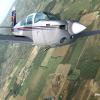Hail damage repair-skin repair-fillers-bondo?
-
Members Online
- Fly Boomer
- christaylor302
- Johnny_SA
- Salvo
- Joe Linnebur
- MikeOH
- N201MKTurbo
- Flyler
- raymondscott0321
- redrider7202
- cferr59
- teethdoc
- redbaron1982
- Parker_Woodruff
- druidjaidan
- hazek
- Marc_B
- BaldEagle
- Patrick Horan
- dzeleski
- jetdriven
- wombat
- GeeBee
- Ethan
- EarthboundMisfit
- Jason 1996 MSE
- Larry
- Stealth Mooney
- Brian Simmons
- hubcap
- Nippernaper
- Rmfriday
- ottorecker
- eman1200
- larryb
- Vance Harral
- Shortround
- rbmaze
- Meshach
- Gilt


Recommended Posts
Join the conversation
You can post now and register later. If you have an account, sign in now to post with your account.